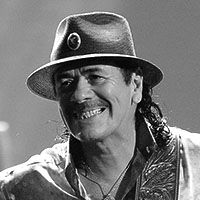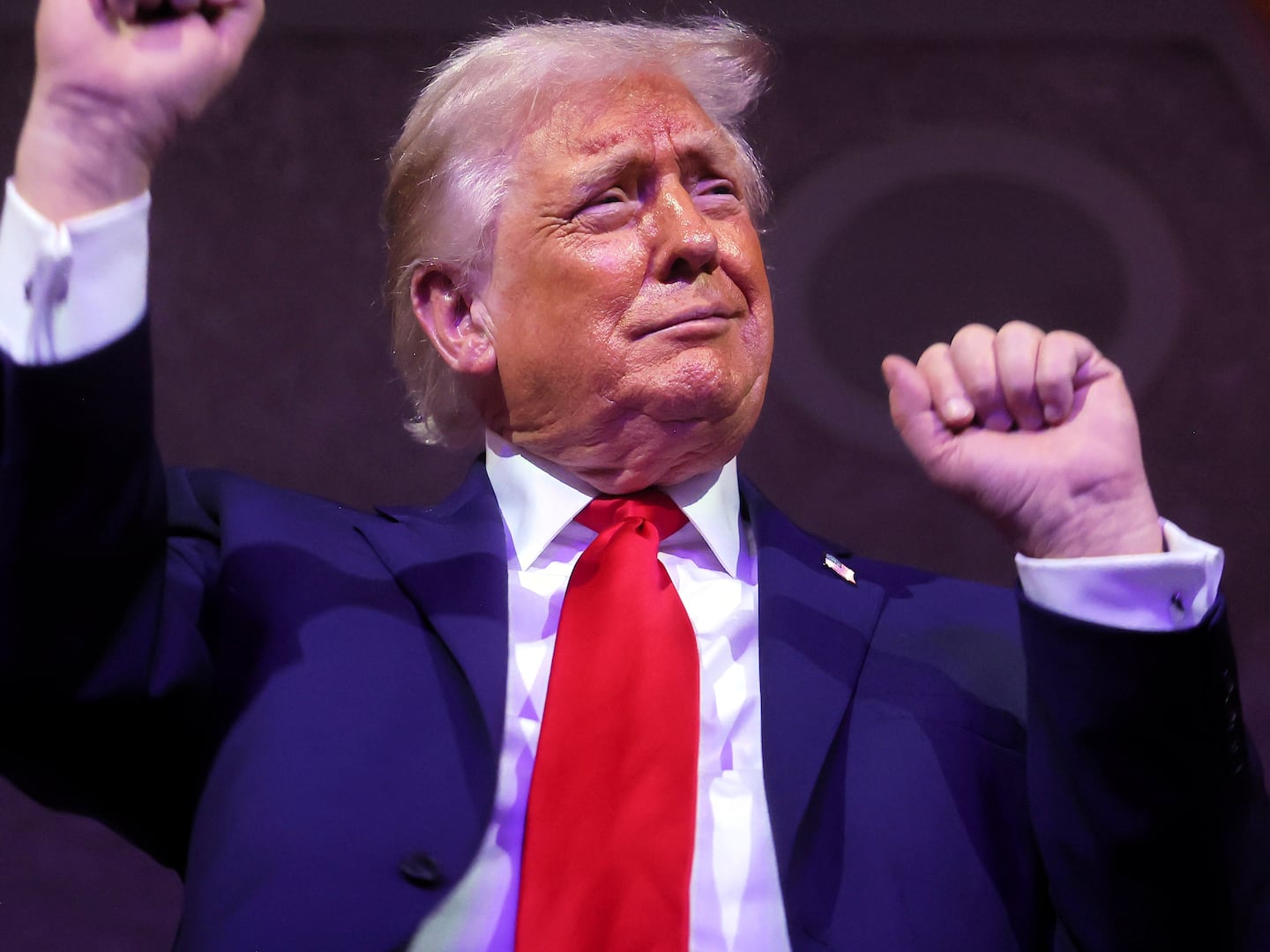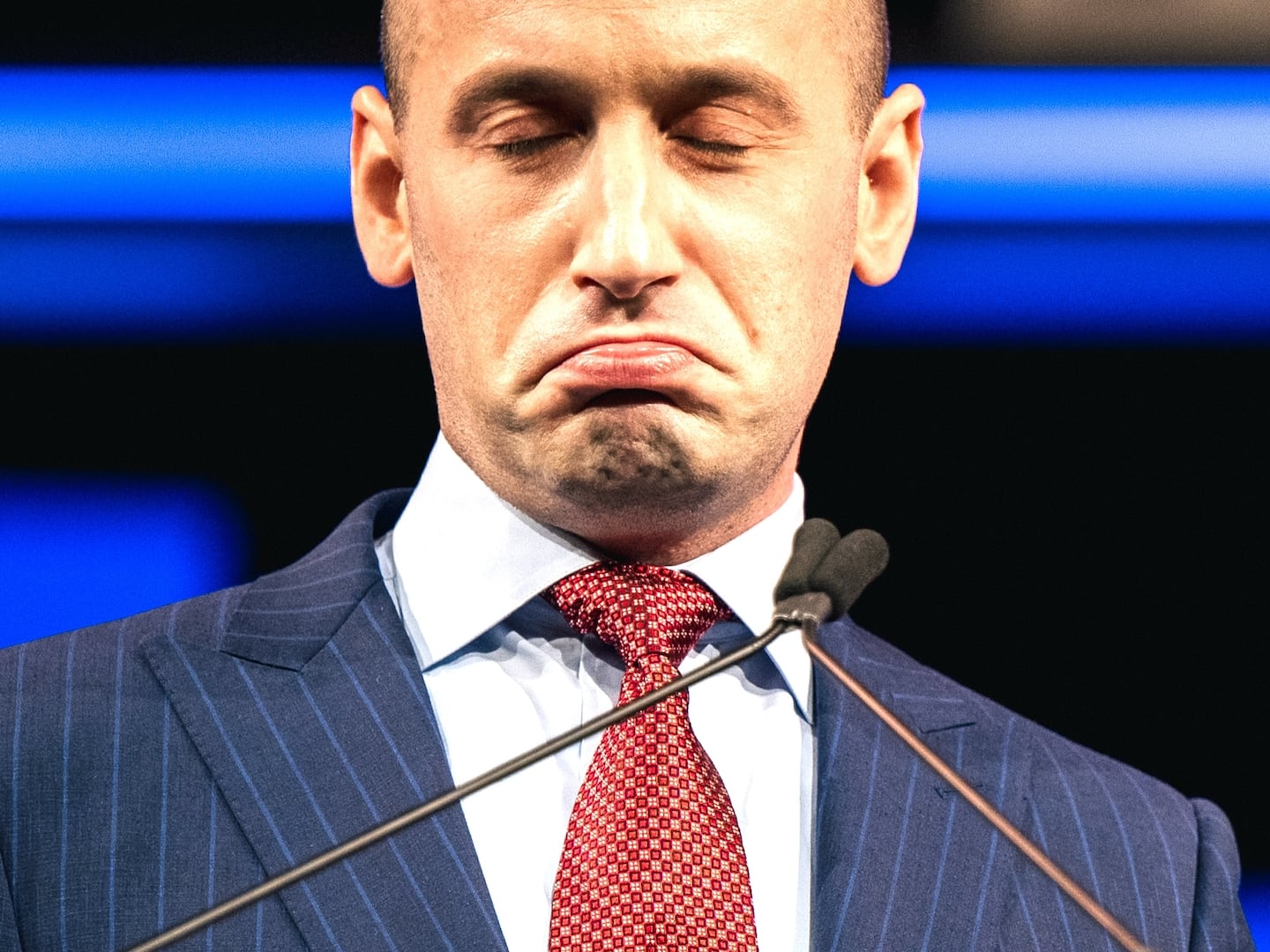I was still shy onstage then. I didn’t say much into the mike, and I wasn’t doing interviews. But if I wanted to meet someone I was fearless and nobody was bigger in my eyes than Miles Davis.
Bill [Graham] was booking a summer weekend up in Tanglewood—an outdoor festival in Lenox, Massachusetts. It was all rock bands except on Sunday, when he put us on a bill with a big group of singers called the Voices of East Harlem as well as Miles Davis—jazz, gospel, R & B, and Santana. This was Bill’s genius—he created that multidimensional environment consciously and honestly and brutally, and he got a new generation to hear the beauty in all this music. And that was the deal: if you want to hear Steve Miller or Neil Young or Santana, you’ve got to hear Miles Davis.
We went up to Tanglewood, and I remember buying some big black-and-white prints of Miles and Ray Charles performing at the Newport Jazz Festival. I bought some, and just as I’m carrying them backstage an amazing yellow Lamborghini drives in, and Miles gets out. I wasn’t afraid, so I went up to him.
“Hi; my name is Carlos—would you be so kind as to sign this for me?” He looked at me and looked at the photo, grabbed a pen, and signed “To Carlos and the best band” or something like that. He knew who I was, so we started talking, and after a little while he said he had something for me. He went into his shoulder bag and pulled out a tube that looked like a big eyedropper wrapped in cowhide, and of course it was cocaine. Miles looked at me and said, “Try it.”
I hadn’t slept the night before, I’m with the Miles Davis, and I did something that I later felt I shouldn’t have done. Cocaine put a distance between my heart and me, between me and the music. My body rejected cocaine as something that made my soul feel disenfranchised—it would say, “This is not for you.” When I remember that Tanglewood performance, I still cringe because it felt like I couldn’t get myself into the center of my heart. It wasn’t the same problem I’d had at Woodstock, but I have the same kind of regret. I decided again to make it permanent: I’d never take what someone else gave me, no matter who it was.
Miles knew what he was doing even when he didn’t know beforehand what was going to happen. He was playing for a young rock crowd, and he knew he was bringing his music onto their turf, but rock bands could not come into his jazz world. He wasn’t shy about it. He used to tell me, “I can go where you guys are, but you can’t come to where I am.”
Miles was right. We didn’t understand harmonically or structurally what he and his band were doing. They had another kind of vocabulary, which came from a higher form of musical expression. It came from a special place—from Charlie Parker and Dizzy Gillespie and John Coltrane—and at the same time it was deep in blues roots and expanded into funk and rock sounds. The sound of Miles back then was a microscope that showed everything that had happened before in jazz and a telescope that showed where the music was going. I was blessed to be around and to hear this music when it was happening. I think if you start by listening to the music he made when he played for Bill Graham at the Fillmores, you can hear how Miles helped people expand the boundaries of their consciousness—his music put stretch marks on their brains.
There’s a story I love to tell about Bill and Miles because it says so much about each of them and about their relationship. I call them both supreme angels because of what they did for me and their impact on my life—and because the way they lived their lives was an example to everyone. They were both angels, but they also had feet of clay.
The way Bill told it, he got a letter from Clive Davis asking Bill to start booking Miles at the Fillmore but left the job of persuading Miles to Bill. Bill already loved Miles, but who tells Miles what to do?
Miles couldn’t get into the idea at first. A lot of it was about the money. Bill offered him a different kind of deal from what he was used to in the jazz clubs, where he would play for a whole week. So Bill made it more attractive financially for Miles. Bill also made the argument that it’s an investment in the future. If Miles played the Fillmore, his name would be on the marquee next to rock bands and he’d be getting through to new listeners—the hippie crowd.
Bill finally persuaded Miles and told him, “I have these dates open, and you’ll open up for so‑and‑so and so‑and‑so.” Bill’s thinking was that even though he respected Miles he could not let him be the headliner. All those hippies coming to hear Neil Young or Steve Miller or the Grateful Dead would not stick around for Miles, and he wanted to be sure they heard Miles. He wanted Miles to go on first so he’d be sure to have a full audience, even if it looked like Miles was opening for them.
Miles did not know these bands—their music did not resonate with him, and for whatever reason he didn’t see himself opening up for them. So Miles showed up late for his first show at the Fillmore East. Really late. Neil Young was the headliner, and Steve Miller was on the bill, too. Miles was so late that Steve Miller had to play first, and they were getting ready to ask Neil to go on. Somebody got through to Miles and got him to hustle down to the club.
I remembered how Bill would be if a band dared to show up late—he would stand with his arms folded across his chest. When Miles got there, Bill was looking at his watch and looking at Miles.
Miles played it cool—“What’s up, Bill?” Miles knew he had him. Bill had made the mistake of telling him that Sketches of Spain was his number one album of all time, the one album he would take to a desert island. The redder Bill got, the calmer Miles was. Bill wanted to let loose some of that New York language that he had educated me with, special words like schmuck. But he couldn’t. This wasn’t some teenage rock group. This was Miles Davis.
Finally Bill let it out. “Miles—you’re late!” Miles looked at him innocently and said, “Bill, look at me. I’m a black man. You know cab drivers don’t pick up black people in New York City.” What could Bill say, right? Meanwhile, Miles had his Lamborghini parked around the corner. Bill probably knew it even then.
After we met in Tanglewood I would see Miles almost every time we played New York City, sitting right in the front row, wearing something flashy, with a fine woman in the seat next to him. He would call me to hang out—he’d find out where I was, track me down, and the phone would ring. “Didn’t I tell you never to come to New York without calling me first?”
“Hey, Miles—what’s up?”
“Whatcha doin’?”
What was I doing? It was three in the morning. “Oh, just having fun and learning.”
I remember a bunch of us from both groups were together at a 5th Avenue hotel—it was Keith Jarrett, Shrieve, and I in the elevator, holding it and waiting on Miles when Miles finally got on the elevator, and when we were going up Miles looked at me and out of nowhere said, “You gotta get you a fuckin’ wah-wah—I got one.” He wasn’t taking any argument. The thing is, I already used a wah-wah on some Santana songs, such as “Hope You’re Feeling Better,” but it wasn’t something that was onstage with me. But the way Miles said it, it was like, “Come on—keep up, man.”
Miles was right—Hendrix had used it, then Clapton with Cream, and Herbie Hancock had it in his group. After a while it felt like any band in the ’70s had to have a wah-wah and a Clavinet or some kind of electric piano. I obeyed Miles and started using a wah-wah in all my live shows. I remember looking at Keith as Miles was giving me that advice, and he just rolled his eyes.
I got a lot of advice from Miles over the years. A few years later, after we hadn’t been in New York for a bit, he called me. “What are you doing now?”
I said, “We’ve been on the road for a while, so we decided to take a break, record an album, and replenish.”
“Well, don’t stay out there too long, man. You don’t want to lose the momentum. You’ve got it going, so don’t stay off the stage too long.” I said, “Okay.”
Another time, Miles told me, “You can do more than just ‘Black Magic Woman.’“
“Thank you, Miles. I’ll give it my best shot.” It wasn’t a spanking, it was an invitation.
I know Miles went out of his way a lot of times to find me and teach me the ropes, tell me when to duck, stay away from this, and have you checked out that? I don’t know how many other musicians Miles showed that side of himself to, but I got the feeling not many. The more I’ve read about Miles, and the more I’ve talked with other people about him, the more surprised I became that he would sometimes drop his guard and mentor me. Because Miles usually would get very intense, and he could read people, and if he saw that he could ride someone, he would mount that person psychologically. I saw him do that to a lot of people.
Miles could push it too far. There’s a story that Armando Peraza told me after he joined Santana. Armando was one tough dude—he came up from Cuba in the ’40s and played percussion with Charlie Parker and Buddy Rich almost immediately after he made it to New York City, and he had no problem going into the roughest part of town to collect money that somebody owed him. One time Armando was playing with George Shearing at the Apollo, and Miles was on the bill, too. Both Miles and Armando were kind of pint-size—when they met, Miles started messing with him in his usual way, and Armando got him in a corner and told him in his accent, “You doan wanna mess wid me. I break you jaw—you never fuckin’ play trompet again.” I can see the words Miles was thinking in a balloon over his head—“Uh‑oh. That motherfucker is crazier than me.” Miles was smart—he knew when to back down.
I later heard that around this time, Gary Bartz knocked on Miles’s hotel room door and said, “Miles, I got to talk to you. I can’t fucking play anymore—that Keith Jarrett is fucking up my solos, playing all the wrong shit, never backing me up. I’m going to quit, man.” Miles said, “Okay, I got it. Tell Keith to come over.” So guess what he tells Keith? “Hey, Bartz just told me he loves what you’re doing: do it some more.”
Sometimes we’d run into each other. One night I was hanging backstage at the Fillmore East checking out Rahsaan Roland Kirk playing flute on Stevie Wonder’s “My Cherie Amour.” Fwap! Someone flicked my ear from behind me—really hard. I’m thinking, “Oh, man—that fucking Carabello . . .” I turn around and fwap, in my other ear. I turn again and there’s Miles running away, almost to the elevator. He saw that I saw him and came back slowly, grinning. He said, “What you doin’, man?” I rubbed my ear. “I was listening to Roland Kirk.”
He said, “I can’t stand that n . . . .” He used the n word.
“Oh?”
“He plays some corny-ass shit.”
I was thinking, “Okay, that’s between you two, because I like Volunteered Slavery.”
Miles was way ghetto. I don’t think he cared so much about what other people thought about him or about what he said, but a lot of times he used words just to fuck with people’s heads. Once I asked Miles if he liked Marvin Gaye. “Yeah—if he had one tit, I’d marry him.” He called Bill Graham Jewboy, and Bill would just go, “Oh, Miles.” Bill wouldn’t take that from anyone else—not Hendrix, not Sly, not Mick Jagger. Later he’d come up to me and say, “Can you believe the way Miles talks to me?” I knew underneath it there was mutual respect, but I still couldn’t believe how Bill’s macho thing could melt away that easily with Miles.
People could be envious of him—even scared. He made some people angry and feel hurt. Some people saw Miles as abusive toward white people. I never saw that. I thought he just abused everybody.
Backstage at the Fillmore I changed the subject. Jack Johnson had just come out, so I said, “Miles, man—your new album is incredible.” He looked at me and smiled. “Ain’t it, though?”
Excerpted from The Universal Tone: Bringing My Story to Light by Carlos Santana and Ashley Kahn; used with the permission of the publisher, Little, Brown and Co..





